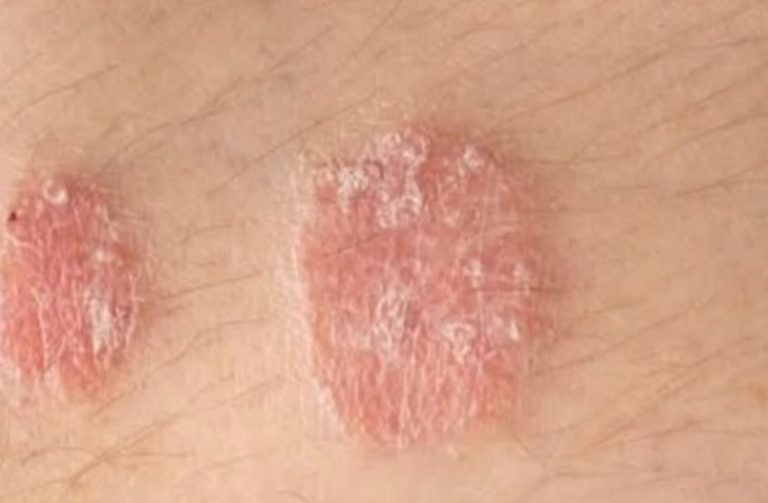ADVERTISEMENT
Introduction
Psoriasis is a chronic skin condition that affects millions of people worldwide. It is characterized by the rapid growth of skin cells, leading to the formation of scales and red patches on the skin. Though it’s most often seen on the elbows, knees, and scalp, psoriasis can appear anywhere on the body. While it may not always be life-threatening, the discomfort it causes can significantly impact one's quality of life. If you begin to notice unusual signs or symptoms, it’s essential to consult a doctor immediately to properly manage the condition and avoid complications.
Signs to Look For
1. Red, Inflamed Patches of Skin
The hallmark of psoriasis is the appearance of raised, red patches covered with thick, silvery-white scales. These patches are often itchy, tender, and inflamed. While they most commonly appear on the scalp, knees, and elbows, they can occur on any part of the body.
2. Dry and Cracked Skin
Psoriasis can cause the skin to dry out, crack, and even bleed. This can be a painful experience, especially if the cracks are deep. In severe cases, the skin may crack enough to bleed, which increases the risk of infection.
3. Thickened or Ridged Nails
Psoriasis can also affect your nails. You may notice that the nails become pitted, thickened, or discolored. In some cases, nails may separate from the nail bed, which can be both painful and disfiguring.
4. Swollen and Stiff Joints
Psoriatic arthritis, which affects about 30% of people with psoriasis, can cause joint pain, swelling, and stiffness. If you experience any joint discomfort alongside your skin symptoms, it is crucial to seek medical attention to prevent long-term joint damage.
5. Itchy or Burning Sensation
While not all cases of psoriasis are itchy, many people experience a burning or itching sensation in the affected areas. This discomfort can vary in severity and may interfere with daily activities.
Why Consulting a Doctor is Important
Consulting a doctor if you notice any of these signs is crucial for a few reasons:
Early Diagnosis and Treatment: Psoriasis treatments are most effective when started early. A healthcare professional can diagnose the condition through a physical exam or skin biopsy and suggest the best course of treatment.
Prevention of Complications: Untreated psoriasis can lead to complications such as psoriatic arthritis, skin infections, or more severe skin damage. Early treatment can help reduce the risk of these complications.
Personalized Treatment Plans: A doctor can tailor treatments to your specific type of psoriasis and any additional health concerns you might have. Options range from topical treatments to systemic therapies, and a healthcare provider will help determine what works best for you.
Ingredients: Key Factors for Managing Psoriasis
Although there is no cure for psoriasis, various ingredients in treatment plans help manage flare-ups and symptoms:
Topical Corticosteroids: These are commonly prescribed to reduce inflammation and help control the rapid skin cell turnover characteristic of psoriasis.
Vitamin D Analogues: These help slow the growth of skin cells and are often used alongside corticosteroids.
Coal Tar: Used in both shampoos and topical treatments, coal tar can reduce scaling and itching.
Moisturizers: Regular use of thick, fragrance-free moisturizers is essential in preventing dryness and cracking.
Phototherapy: Exposure to ultraviolet (UV) light, under medical supervision, can help treat moderate to severe psoriasis.
Preparation: How to Manage Psoriasis at Home
In addition to medical treatment, some home remedies may help alleviate symptoms:
Bathe in Lukewarm Water: Soaking in lukewarm water with oatmeal or bath oils can soothe inflamed skin.
Apply Moisturizers: After bathing, apply a thick, fragrance-free moisturizer to lock in hydration.
Avoid Triggers: Common psoriasis triggers include stress, cold weather, smoking, and alcohol consumption. Identifying and avoiding your specific triggers can help prevent flare-ups.
Serving and Storage Tips
While psoriasis doesn’t require “storage” like a food item, managing flare-ups can be more manageable with a routine:
Keep your medications and topical treatments in a cool, dry place, away from direct sunlight.
Store moisturizers and skin treatments at room temperature to prevent degradation of their active ingredients.
Variant: Different Types of Psoriasis
ADVERTISEMENT
